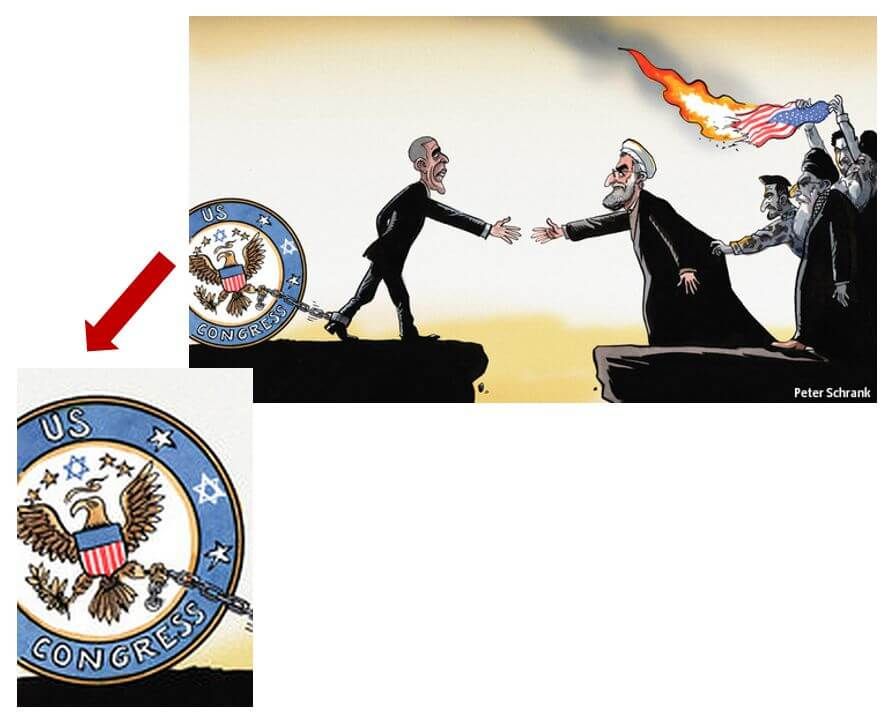HonestReporting firmly believes that the U.S. and EU working definitions of anti-Semitism should be adopted by all media outlets, and 30,000 people who signed our petition agree. But The Economist has, so far, ignored our call to adopt these standards.
Earlier this week, The Economist was rightly criticized for publishing this cartoon, which it eventually removed:
The cartoon created a great deal of publicity, including coverage in The Times of Israel. HonestReporting was cited in its article, drawing attention to the fact that the cartoon falls firmly under the working definitions of anti-Semitism from both the U.S. State Department and the EU, which specifically include:
Making mendacious, dehumanizing, demonizing, or stereotypical allegations about Jews as such or the power of Jews as collective — such as, especially but not exclusively, the myth about a world Jewish conspiracy or of Jews controlling the media, economy, government or other societal institutions.
Having collected 30,000 signatures on our petition calling on the mainstream media to adopt the anti-Semitism definitions, we sent an email and the 30,000 names to The Economist’s Editor-in-Chief John Mickelthwait, part of which is reproduced here:
There has been much concern in recent years surrounding the discourse, language and imagery employed when discussing or writing about Israel and the Jewish people. There have even been incidences where charges of anti-Semitism have been leveled against individuals or media outlets.
That is why HonestReporting, the world’s largest grassroots watchdog organization monitoring anti-Israel media bias, and our readers are asking you and other mainstream media to adopt the U.S. State Department and EUMC working definitions of anti-Semitism. We have collected 30,000 signatures on a petition calling for media outlets such as yours to adopt this definition.
A quick look at the working definition may very well have prevented this latest cartoon from causing such offence had the editorial staff of The Economist been aware of its existence.
This effort is in no way meant to impact on freedom of speech or expression. We believe that an effective dialogue concerning anti-Semitism and what constitutes legitimate discourse on Israel can only take place when there are commonly accepted definitions of the term. While the arguments involved may become heated or even controversial, we believe that the media themselves should be educated and informed as to when that speech crosses a red line.
We hope that you will consider adopting this wholly sensible definition, both as an ethical and moral imperative and also as a means of bringing civility to the discussion without the need for demonizing, offensive or anti-Semitic rhetoric and imagery.
Two days later and we have not even had the courtesy of a response from anyone at The Economist. Is this a sign that the magazine removed the cartoon merely to deflect criticism and does not take the issue of anti-Semitism seriously?
Watch this space as we start to send the petition to other media outlets.
UPDATE
The Economist has finally apologized and updated its Editor’s note. See here for more details.



